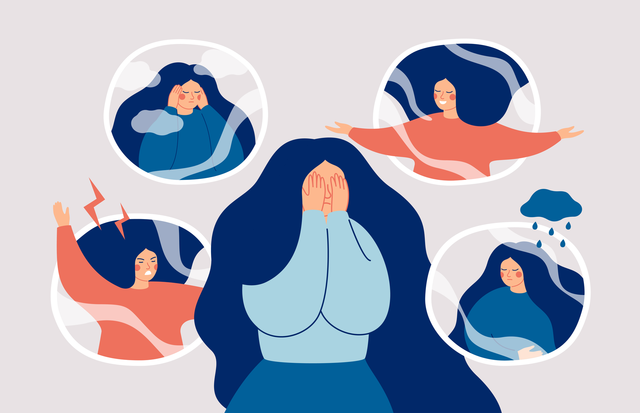5 Ways to Get Involved For World Bipolar Day

World Bipolar Day (WBD), which takes place annually on March 30, isn’t just about shining a light on the topic of bipolar disorder – it’s also about how we can learn to do our part by spreading awareness and setting the facts straight on a mental health condition that affects an estimated 4.4% of all U.S. adults at some point in their lives.
The more that we talk about mental health, the more that we can help destigmatize the topic and educate others on just how common mental health conditions like bipolar disorder are. Getting the conversation going is the main focus of World Bipolar Day. The entire day is centered around recognizing the unique challenges that individuals with bipolar disorder and other mental health conditions face and why.
Here’s what you should know about World Bipolar Day, including five ways that you can participate, and help be an advocate for the millions of people who live with a mental health condition.
WBD and the Importance of Spreading Bipolar Awareness
All of us can benefit from having more open and honest conversations about bipolar disorder and other mental health conditions.
The purpose of World Bipolar Day is to do just that, facilitating discussions about bipolar disorder and spreading the word about community resources for bipolar disorder help and support.
WBD is a global event launched and organized by the International Society for Bipolar Disorders (ISBD) in conjunction with the Asian Network of Bipolar Disorder (ANBD) and the International Bipolar Foundation (IBPF). Every year, the event seeks to improve worldwide education around bipolar disorder, in turn increasing access to crucial resources and improving sensitivity about BP.
There are many reasons why you should do your part, even if you yourself do not suffer from BP or know someone who does. The more awareness there is about bipolar disorder, the more acceptance that follows. Getting involved is also a way to show solidarity with all those who have experienced or currently experience BP or another mental health disorder, in turn helping break down the stigmas that so often stand in the way of people feeling supported and seen — and that might keep them from getting the help that they need.
The Bipolar Disorder Ribbon and Other Ways to Participate
Here are five ways that you can get involved for WBD:
- Wear a Ribbon: Wear a green bipolar disorder ribbon in solidarity with all of those whose lives have been affected in some way by BP. You could also wear a green BP wristband, bracelet, or pin.
- Participate in Online Events: Visit isbd.org/get-involved to learn about how you can engage with and/or organize BP events in your area.
- Share Your Story: If you or a loved one has experienced BP, consider sharing your story to help others feel less alone.
- Get Social: There are plenty of easy ways to support World Bipolar Day on social media, including updating your avatar with a WBD ribbon or sharing BP facts.
- Donate to Research Groups: We still have a lot to learn about BP. Contribute to these efforts by donating to the ISBD or other dedicated research groups.
Community and Family Resources
There are a great deal of resources for those whose lives have been affected by BP, including those that help break down all of the basics around what bipolar disorder is, how it can affect an individual’s life, and when it may be time to seek help. The National Institute of Mental Health has a resource page that is a great place to start, with plenty of free and shareable graphics.
If it would be beneficial for you, we also encourage you to seek out bipolar disorder support groups for family members or for individuals who have been diagnosed.
Bipolar disorder is a lifelong disorder that requires ongoing treatment. And the more that we talk about it, the more that we remove any shame, stress, or isolation that may accompany the diagnosis. For more information or dedicated support, we invite you to learn more about Synergy Health Programs or contact us to further the discussion with a mental health professional.



